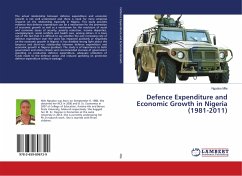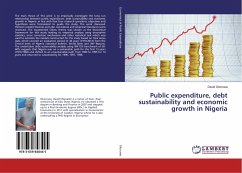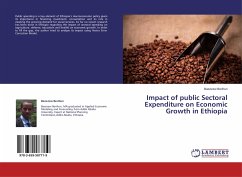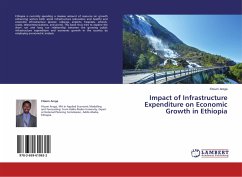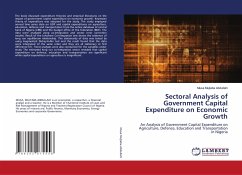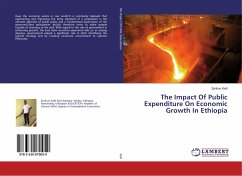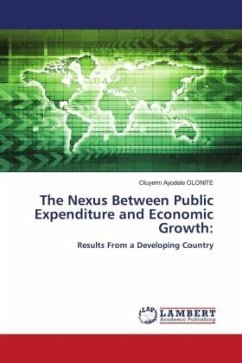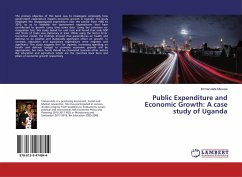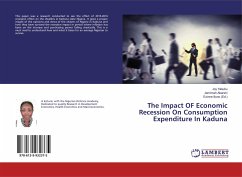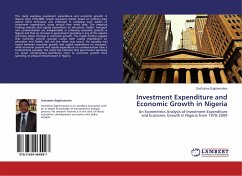
Investment Expenditure and Economic Growth in Nigeria
An Econmetrics Analysis of Investment Expenditure and Economic Growth in Nigeria from 1970-2009
Versandkostenfrei!
Versandfertig in 6-10 Tagen
27,99 €
inkl. MwSt.

PAYBACK Punkte
14 °P sammeln!
This study examines investment expenditure and economic growth in Nigeria from 1978-2009. Simple regression model, based on ordinary least square (OLS) technique was employed in analyzing each aspect of investment expenditure, using annual time series data. The empirical findings indicate that capital expenditure on education, health, transport and communication are indispensable in achieving economic growth in Nigeria and that an increase in government spending in any of the aspects will bring about increase in economic growth. The results further suggest that economic growth granger causes b...
This study examines investment expenditure and economic growth in Nigeria from 1978-2009. Simple regression model, based on ordinary least square (OLS) technique was employed in analyzing each aspect of investment expenditure, using annual time series data. The empirical findings indicate that capital expenditure on education, health, transport and communication are indispensable in achieving economic growth in Nigeria and that an increase in government spending in any of the aspects will bring about increase in economic growth. The results further suggest that economic growth granger causes both capital expenditure on education and health, but not the other way round. No causality was found between economic growth and capital expenditure on transport, while economic growth and capital expenditure on communication have a bi-directional causality. The result also indicates that government spending on social infrastructure contributes more to economic growth than spending on physical infrastructure in Nigeria



